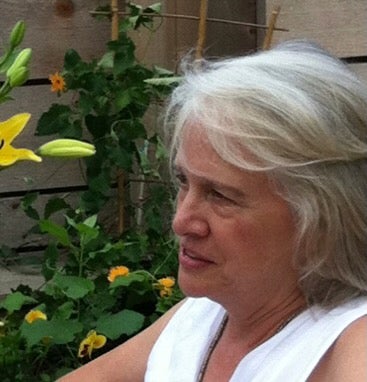General Submissions for the Print Journal
Currently closed. Submissions open August 1.
General submissions for the print journal will be accepted in 2024 from January 1 to April 1 and August 1 to November 1. Average turnaround time is six months, but we may take longer and ask that you do not query us until a year has passed.
Prose submissions: Manuscripts should be double-spaced, right margins not justified; 1,500–7,000 words. All nonfiction submissions will be automatically considered for publication in MQR Online. All stories accepted for publication will be passed on to a judge as finalists for the $2000 Lawrence Prize. There is no additional fee for the prize beyond submission.
Poetry submissions: Please submit up to 6 poems in one document, not to exceed a total of 12 pages. Poems published in MQR by early career writers (those who have not yet published a full-length collection) will be considered as finalists for our Page Davidson Clayton Prize.
Translations: Please submit translations in the appropriate genre and include biographical information for both the author and translator.
Special Calls
MQR Mixtape—DANGER, or: Speak Anyway
Now accepting submissions via Submittable! Submissions close May 31.
Guest edited by Kabelo Sandile Motsoeneng.
In “Create Dangerously: The Immigrant Artist at Work” Edwidge Danticat writes, “to create dangerously” means “to create fearlessly, boldly embracing the public and private terrors that would silence us, then bravely moving forward even when it feels as though we are chasing or being chased by ghosts.” To contend with the danger of the everyday demands courage and boldness, the doubt notwithstanding. For this issue, MQR Mixtape seeks original, brave, and inventive work that bears witness to and reckons with human peril. We are particularly interested in work that troubles its genre, language, and the very idea of “danger” or speaking. For this issue, we seek honest work that contends with what impels them to stay silent but demands an unsilencing through art. What is the place of humor in works about imperiled lives? What does a dangerous story look like? What does a dangerous essay look like? What is the literary possibility of danger?
We want to know, so please submit:
- Fiction: up to 5,000 words
- Nonfiction: up to 4,500 words
- Poetry: 1–4 poems, up to 6 pages total
- Hybrid work, visual art and/or audiovisual: 250 word abstract and sample
Only previously unpublished work will be considered. Simultaneous submissions are permitted, but please notify us immediately if your work is accepted by another publication. Please send only one submission per window; subsequent submissions will be rejected automatically.
Submission Deadline: May 31, 2024.
Kabelo Sandile Motsoeneng has published fiction and literary journalism in Joyland, Lolwe, Prairie Schooner and others. Currently a Zell Fellow at the University of Michigan, Motsoeneng obtained his MFA in Fiction at the Helen Zell Writers’ Program and studied English and Human Rights Studies at Trinity College. Motsoeneng has been awarded the Avery Hopwood Prize in the Novel, the Frederick Busch Prize, among others. He’s currently working on a novel set in Johannesburg, where he grew up.
Prizes
MQR awards several literary prizes annually. See below for information on prizes with specific submission windows. Click here for more information on the full range of prizes MQR offers.
James A. Winn Prize in Nonfiction
Now accepting submissions via Submittable! Submissions close May 31.
The Winn Prize is awarded annually to a work of nonfiction of exemplary quality submitted for consideration. One essay submitted for this prize will be awarded $1,500 and publication in MQR. All submissions will be considered for publication.
The 2024 judge is Elizabeth Goodenough.

Elizabeth Goodenough has taught at Harvard, Claremont McKenna, and Sarah Lawrence Colleges as well as at University of Michigan’s Residential College, School of Education, and School of Information. She graduated from Smith College, received an MAT and PhD from Harvard University, and published Infant Tongues: The Voice of the Child in Literature (Wayne State Univ. Press, 1994), Secret Spaces of Childhood (U of Michigan Press, 2003) and Under Fire: Childhood in the Shadow of War (Wayne, 2008). Her co-produced, award-winning PBS documentary, Where Do the Children Play? included companion volumes: A Study Guide to the Film (WSUP, 2007) and A Place for Play (National Institute for Play, 2008). Summer 2024 she participates as a U-M Road Scholar. What the Presidents Read: Childhood and Family Favorites, co-edited with Marilynn Olson, will be published by Rowman & Littlefield in Fall 2024.
Laurence Goldstein Prize in Poetry
Currently closed. Submissions open November 1.
The Goldstein Prize is awarded annually to a poem of exemplary quality submitted for consideration. One poem submitted for this prize will be awarded $1,000 and publication in MQR. All submissions for the prize will be considered for publication.
Submission Guidelines. Please submit up to five (5) previously unpublished poems with a total page count of no more than ten (10) pages. Simultaneous submissions are acceptable but please leave us a note to withdraw individual poems if they are accepted elsewhere. We ask entrants not to include their names or contact information within the document they upload to Submittable, its title, or its file name. Affiliation with the judge, MQR, or the Helen Zell Writers Program may disqualify a submission; please consult the prize details on Submittable for more information about exclusions.
The 2024 judge is Lawrence Joseph.

Born in Detroit, the grandson of Lebanese and Syrian Catholics, Lawrence Joseph is the author of numerous books of poetry, most recently A Certain Clarity: Selected Poems (Farrar, Straus and Giroux, 2020). He is also the author of two books of prose, Lawyerland, a non-fiction novel published by FSG, and The Game Changed: Essays and Other Prose, in the University of Michigan Press’s Poets on Poetry Series. Among his awards are two National Endowment for the Arts poetry fellowships and a fellowship from the Guggenheim Foundation. He is Professor of Law Emeritus at St. John’s University School of Law and lives in New York City.
Jesmyn Ward Prize in Fiction
Currently closed. Submissions open November 1.
The Michigan Quarterly Review has established this prize for fiction in honor of Helen Zell Writers’ Program alumna Jesmyn Ward and her significant contributions to the literary arts. One short story submitted for this prize will be awarded $2,000 and publication in MQR. All submissions for the prize will be considered for publication.
Submission Guidelines. Please submit one unpublished short story of 1,500–7,000 words. Simultaneous submissions are welcome but please withdraw your submission as soon as it is accepted elsewhere. We ask entrants not to include their names or contact information within the document they upload to Submittable, its title, or its file name. Affiliation with the judge, MQR, or the Helen Zell Writers Program may disqualify a submission; please consult the prize details on Submittable for more information about exclusions.
The 2024 judge is David Lynn.

David H. Lynn was the editor of The Kenyon Review from 1994 to 2020 and Professor of English at Kenyon College from 1988-2023. His latest collection is Children of God: New & Selected Stories (Braddock Avenue Books, 2019). Rebuilding the Goat Walk: An Eco-Memoir will be published by Braddock Avenue Books in 2024. David Lynn is also the author of the novel Wrestling with Gabriel, an earlier collection of stories, Fortune Telling, and a critical study, The Hero’s Tale: Narrators in the Early Modern Novel. Awards include an O. Henry Prize, the Glimmer Train Short Story Prize 2015, the Frank O’Connor International Short Story Award Finalist, and the Ohioana Library Association Award for Editorial Excellence.
Pitch to MQR Online
Our online-only companion to the print journal, MQR Online publishes book reviews, essays, arts and culture features, and author interviews. We are currently accepting pitches for MQR Online features in these genres. Please submit your brief pitch in the body of an email to mqronlinepitches@gmail.com. Our Online Editor will invite selected pitches to submit a full piece (up to 3,000 words) for consideration. Please note that we are unable to respond to all pitches and that we are not currently accepting fiction or poetry submissions for MQR Online; please submit work in these genres for consideration in the print journal via Submittable.



